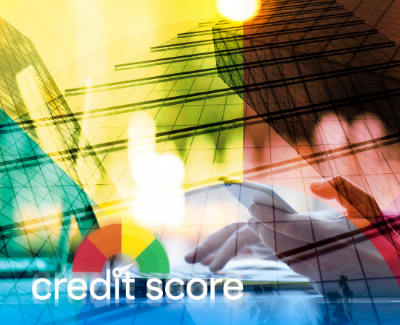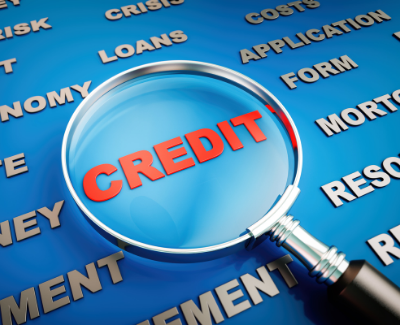
Why My Credit File is not Being Updated by Credit Bureaus?
Why My Credit File is not Being Updated by Credit Bureaus?
Most people struggle to understand why their accounts on credit bureaus are showing older information or credit scores. They also don’t understand how and who can help them update their credit report. For this reason, we have mentioned some basic aspects of a credit file that you must know to build an excellent credit score. Let’s discuss it.
Why My Information is Present on Only One Credit Bureau?
Generally, people face this problem that only one credit bureau shows their updated credit information. To determine your score, agencies calculate your information through the proprietary formula VantageScore and FICO. As your credit scores and reports get updated using this new information, scores can greatly fluctuate. However, there are other reasons why your information is not present in all the three-bureau agencies.
Some lenders and creditors don’t subscribe to all three credit bureaus. This may be one reason why you see your information and account on one credit report but not the other two. Additionally, some rent payments don’t come on your credit report if you are renting from a relatively smaller lender who hasn’t even subscribed to a credit bureau. Usually, accounts of bigger companies appear on the TransUnion or Experian credit report.
When Credit Bureaus Update Your Scores?
So, now you know a bureau doesn’t update your information if your lender doesn’t have its subscription. At other times, fortunately, when the bureau receives information about your account, you will notice an update on your account immediately. Your credit bureau will recalculate your information right away after getting something new on your account.
You may even observe a slight change in your credit score. However, these new details may not have any major impact. For instance, making one or two payments on time doesn’t have any effect on your score. On the other hand, you can quickly notice a sudden drop in your score after you miss a payment.
Apart from this, people commonly complain that their Equifax credit report is not being updated. It is because of the number of emergency payment freeze requests. Due to this problem, the CRAs (credit reference agencies) and the companies that give them monthly updates agree to delay some updates for some time. It helps the credit providers to deal with the freeze requests easily.
Can I Ask a Creditor to Update My Credit Report?
If you are worried that your information is not being updated, you can ask your creditor to send information to the bureau. They can use the technique of rapid resource, which means they will submit proof to the bureau to update your account information that is not present in your credit report yet.
Once your report gets updated, you will see a new credit score reflecting new and recent details. But only your lender can request for the rapid rescore, so you can’t ask for it on your own.
How Much Time It Will Take to Build a Good Credit Score?
If your credit score is already updated, but you want to build a good credit score, you need to pay bills on time and avoid using too much on your available credit limit. On the other side, hurting your score will not take too much effort. If you miss a single payment, you may fall out of the good score category.
Additionally, credit scores depend on the information on your accounts. Once you start paying payments on time, your credit score will gradually start improving. The time will totally depend on how bad your credit score is. It can even take a year if your credit score is far from getting into an excellent range.
Bottom Line
All the credit bureaus need to receive the information in order to update your credit report. However, most of the creditors and lenders have one bureau account. This is why the information doesn’t appear on the other credit agencies.

What Affects My Credit Score and Why Is It Not Raising?
Your credit score matters a lot, especially if you want to apply for a loan. However, improving your score can be a challenging task for you, as you need to take into account several aspects. But once you understand what things can affect your score, you can simply avoid them from happening. This, in return, helps you raise your credit score.
Let’s discuss the factors that improve your credit score.
Payment History
A credit report shows your payment history. It also reveals whether you are continuously paying all the obligations on time, such as bills. 35% of your credit score depends on your payment history. Models like FICO and VantageScore use it to calculate the score.
This is why you need to pay your bills on time and before the 30 days deadline. The later you pay, the more it can hurt your credit scores. You can set auto-reminders to avoid missing due dates or use autopay options with the lender.
Amount of Debt
Debts account for around 30% of your score. The money you owe, also known as the credit utilization ratio, is calculated by estimating how much money you have used from the amount of your debt.
For instance, you have a credit card containing a $200 balance. It has a credit limit of $1,000, and your credit utilization percentage is 20%. In that case, you need to ensure your credit utilization rate is not more than 30%.
Credit History Length
It accounts for more than 15% of your FICO credit score. Credit history length also includes:
- Your account’s average age
- Age of the oldest credit accounts
- Age of your newest account
Usually, longer credit history leads to higher scores.
Credit Mix
Most people with great credit scores have a diverse portfolio of accounts. It can include credit cards, auto loans, mortgage loans, student loans, and other credit items. The models like FESCO consider your types of accounts and how well you are managing multiples of them. Credit mix accounts play a 10% role in your score. However, if you do not see your account rising, this means you are not managing your multiple credit products accurately.
New Credit
When you submit the new credit application, your lender or bank takes out the details from your credit file. This leads to the hard credit check. You may think that one hard credit check is not a big thing, but it can decrease your FICO credit score. Not to mention, your new credit will decrease your account by around 5 points on your FICO score. This is huge for people who are standing between an excellent and bad credit score.
It can also lead to problems for you if you are applying for the new credits too often. This is because hard credit checks will go to add up. Furthermore, if you think your score is not decreasing even after it, you need to understand that it is the reason why your score is on the same line instead of increasing.
Bottom Line
Hence, if you want to improve your credit scores, try to pay your bills on time, prevent applying for new credit, and keep your credit records clean.

What is a Good Credit Score?
What is a Good Credit Score?
If you want to opt for any loan or credit card, you need a credit score that can allow lenders to approve your application. Having a good credit score increases your chances of receiving cards or loans for different purposes.
What Is a Good FICO Score?
The FICO Score 8 is the most common scoring calculation method used by all three credit bureaus, which ranges from 300 to 850. In addition, lenders also use the FICO Bankcard Score, ranging from 250 to 900. However, if you fall into the high score category in the FICO Score 8, you will also have a high score in FICO Bankcard Score.
Here are the credit ranges of FICO, from exceptional to poor credit score.
- Exceptional- 800 or above
- Very good- 740 to 799
- Good- 670 to 739
- Fair- 580 to 669
- Poor- 579 and lower
Moreover, the average FICO score by the end of July 2020 was 711 that comes in the good credit score range. A person having a good FICO score is eligible to apply for any loan or credit card. You will come in the prime lending category if you have a score of around 670. In this case, you don’t receive the top rate, but you can find acceptable offers.
Remember that you can also get into a very good FICO score range. If your score ranges anywhere between 740 and 799, it means you have a higher score than average. This way, you have a high chance to get approved for almost any type of credit or loan you have applied for.
What Is a Good Vantage Score?
When it comes to the Vantage Score 3.0, it offers you a range from 300 to 850, similar to the FICO score. However, it is a bit different in terms of different credit ranges.
- Excellent-750 to 850
- Good-700 to 749
- Fair- 650 to 699
- Poor- 550 to 649
- Very poor- 300 to 549
The primary difference in the good credit score of both scoring methods is that Vantage Score considers different factors while determining your score.
How to Build a Good Credit Score?
If you want to build a good score, you will need to take responsibility for your credit report. The following are the things you can do to maintain an acceptable score.
Pay Bills on Time
To pay your bills on time, you can set up electronic reminders or automatic payments. This way, you will remember to pay before the due date.
Avoid Credit Limit
Try to keep all of your credit card accounts’ use below 30% of your available credit.
Check Credit History
Regularly checking your credit history will promote healthy credit habits that will pay you off in the long run.
Apply for Required Credit
When a person applies for several credit cards or loans in a short period of time, the lenders will predict your financial condition has become worse, leading to disapproval for anything you apply for.
Bottom Line
In a nutshell, FICO and Vantage have different good credit scores. However, both of them support credit cardholders to manage their credit reports. An excellent credit report helps you keep your credit score in a good score category. For questions or more information please contact a professional counselor at Noraveni Credit Repair.

What are FICO and VANTAGE Score?
What are FICO and VANTAGE Score?
Wondering what are FICO and Vantage score? Are they different or the same methods? In that case, you need to read the article to get an idea of how these two scoring methods use different approaches.
What Is a Vantage Score?
It is a credit score created by three major credit bureaus. This score helps to predict the chances of a borrower to repay the money. Landlords, a financial institution like banks, and other lenders use Vantage Score to determine a borrower’s creditworthiness.
Equifax, Experian, and TransUnion came together in 2006 and decided on the algorithm to create Vantage Score. The idea was to build a mechanism that can compete with the popular credit scoring method, FICO. Not to mention, consumers can also use this credit scoring method for free.
What is a FICO Score?
This is a three-digit score calculated using the information present in your credit reports. Like the vantage scoring method, it helps lenders to identify if borrowers can repay their loans. This also largely depends on how much money you borrow, how much interest rate you have to pay, and how much time you have to repay.
Whenever you apply for a loan, the company or the lender needs a consistent and fast way to determine whether you are eligible for a loan. In that case, they will look for your FICO scores. You can consider FICO as a summary of the information in your credit report. It includes how much credit you have, how long you have had credit, and do you pay monthly minimum payments on time.
Not only is it an excellent method that helps lenders to make quick decisions, but it also helps people to get fast and fair access to credit when they need it.
Vantage Score and FICO Score: What’s the Difference
The biggest difference between these two scoring methods is the scoring range. FICO score use credit range from 300 to 850. On the other hand, Vantage uses a 501 to 990 scoring range. This is why Vantage and FICO scores conversion becomes necessary for both lenders and consumers to determine their credit rating strength. Because of the shift of the Vantage 3.0, both the scoring frameworks now work on the same scales. Although both scoring systems consider the same numerical range, the scores can greatly vary because of the difference in criteria to analyze possible credit risks.
FICO uses the following five key factors for calculating scores.
- Current credit balances: 30%
- Payment history: 35%
- New credit approvals and applications: 10%
- Length of credit history: 15%
- Existing mix of lending products and credit accounts: 10%
Meanwhile, Vantage uses the following six factors.
- Payment history: 40%
- Current credit utilization: 20%
- Length of credit history and types of credit used: 21%
- Credit applications or Recent loan: 5%
- Current credit balances: 11%
- Available credit amounts: 3%
For a Good Vantage and FICO Score, What You Need to Do?
As both scoring methods are calculated using your credit report, you need to keep it clean. Here is what you need to do.
- Pay your bills and monthly minimum payments on time
- Maintain your credit cards balance low
- Manage your debt
- Make smart credit choices
- Don’t close old credit cards
- Check your credit report regularly
- Limit your application for new credit
Bottom Line
Both Vantage Score and FICO score have equal importance. The best part is if you maintain a good credit report, you can get an excellent credit score from both credit score calculation methods. For assistance and questions regarding credit restoration contact a professional counselor at Noraveni Credit Repair.

Why is Credit Important?
Credit is not your everyday household conversation that you pass along to your children. If this had been the case all us of would have been prepared for the reality of credit. Many of us were just told make sure you pay your bills and pay them on time. Well, there is more to it than this statement. When you enter college, you are given a credit card you max the card out because it’s your first card and you didn’t realize the responsibility and things just happened from there.
Credit repair is not an overnight process, it’s a lifestyle change that sometimes can be a lengthy process. Keep in mind everyone’s credit repair journey will be completely different, but the process requires full dedication. As individuals we tend to look at our credit only when we are in need of acquiring or purchasing something. It is a good practice to keep your credit profile updated. Error’s inaccuracies, and fraud can occur when you do not keep an eye on what is going on with your credit.
Credit is instrumental in everyone’s life it provides a financial tool to assist you daily with your finances. Credit plays an instrumental role in everyone’s life where it provides a convenient and flexible financial tool to assist your daily financial life.
Creating a strong credit lifestyle is important for a stable financial well-being. Credit plays an instrumental role in everyone’s life it provides a convenient and flexible financial tool to assist your daily finances. Credit refers to your ability to borrow and the amount you borrow. As a borrower your credit reputation is based on your loan and credit card accounts. These accounts notify lenders of your repayment history and determines whether or not your loan application can be approved.
Your credit profile includes information about your borrowing history. Maintaining your credit history means that you have to debt payments on time and regularly to avoid financial default. Remember this is a lifestyle and you keep up to date with the process of monitoring your accounts and behavior. To create a healthy credit lifestyle, it is a way of living that starts with you.
Your credit consists of information about your borrowing history. Consequently, maintaining your credit health would mean that you have to make a constant effort to make debt payment regularly to avoid yourself from being stuck in a debt trap. Individuals are encouraged to be mindful that in the event that your financial well-being begins to lose its momentum, you are advised to seek further assistance and financial guidance from a professional financial planner. Instill or cultivate a healthy credit lifestyle, it has to start from the individual themselves contact Noraveni for immediate assistance.
Here are some tips:
Be a wise and careful spender
• Stick to your credit limit.
• Do not exceed your budget.
• Borrow only what you are confident and capable of repaying the financial institutions back.
• Avoid the temptations of buying on impulse – learn how to identify your true “needs” and “wants” and not to spend beyond your means.
Start Saving for your Financial Nest Egg
• Upon applying for a credit facility, individuals are encouraged to save up for your financial safety future.
• Cover unexpected expenses and payments that could potentially delay credit payments.
• Late payments will jeopardize your credibility or creditworthiness; and impact in lowering your score from up to a year.
• Creditworthiness refers to your history of trustworthiness, a moral character, and expectations of a continued performance that demonstrates your ability to pay. With an unsatisfactory creditworthiness, banks or lenders will be less inclined to approve your future loans.
Check your credit report regularly
• By checking your credit report, you can have an overview of all your credit repayment commitments.
• Checking your credit report enables you to verify that the credit information reported is correct and up to date.
• Checking your credit report regularly will also help you examine and assess your credit payments.
• It inspires you to build a good credit standing and reputation.
• Proper assessment of your credit report can help you monitor and plan your monthly expenses efficiently.
The main function of the Credit Bureau is to collect, compile, consolidate and disseminate factual information in relation to the creditworthiness, or the ability to meet debt obligations of individuals or commercial entities.
